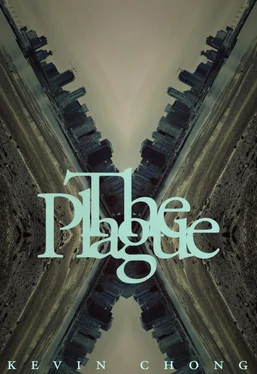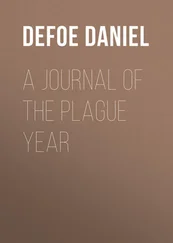The interview appeared later that day on GSSP and was widely re-posted, but it achieved the opposite effect to what Parsons had intended. The mayor sounded defensive, annoyed that the public was so interested in his personal life. He implied that Vancouverites took pleasure in his fall because it was a distraction. By contrast, the public felt that Parsons’ desire to return to the policy fight against the disease and the underlying inequities it revealed was merely the smokescreen for his personal failures.
Rieux rearranged his schedule at the clinic to allow for night and weekend shifts at the auxiliary hospital. On days when he would have ordinarily slid into spandex to ride to Squamish and back, he donned pea-green hospital scrubs and booties.
The rate of infection had not abated. The patients came from throughout the city like random jury-pool selections. The poor and the elderly who arrived were admitted with more advanced symptoms. Only a fraction of the patients he saw—between a quarter and a third, by Rieux’s count—responded to antibiotics. Castello told him that a vaccine was currently being tested on macaque monkeys at the National Microbiology Laboratory in Winnipeg.
He spent most of his shifts watching people die. He had seen deaths during his residency and on his shifts at the lung clinic, but not in this volume, not with this frequency. These patients looked like nothing he’d ever seen before, yet they sparked recognition within him. It took him into his second day, while sitting in front of his laptop, to find the faces he’d been looking at in Medieval paintings.
Where he worked, no saints interceded from the heavens, no demons pulled his patients by their respirator tubes and IV lines into the netherworld. But those Old Masters were not working entirely in the realm of symbolism. In the sixty-year-old man whose body in repose was polka-dotted in buboes, whose face showed agony blanched in listlessness, Rieux recognized a model for a sixteenth-century woodcut. An orderly turning over a patient, his broad shoulders twisting through his hospital gown, shared the musculature of a worker hauling a plague victim into a wagon in a famous etching.
Rieux saw himself in those paintings too. Haughty and slight, wearing his gown and mask—preserving his own health without saving others—he felt estranged from his own silhouette. He saw illustrations of plague doctors as crow-like bird men wearing black wide-brimmed hats and ankle-length gowns and wondered whether Medieval painters hadn’t cryptically represented the unease of the doctors. In the artist’s eye, the doctor was no saviour but a scavenger who descended on a field of death and snatched the least doomed specimens for profit. The plague doctors of the sixteenth century wore masks that resembled bird’s heads with glass eyeholes and curved beaks stuffed with aromatics like mint and camphor to ward off disease, because before germ theory was introduced, disease had been thought to spread through odours. Plague doctors held staffs so they could point at infection without touching it.
In the end, it was not the images of dying people that made him restless but their cries for help. Some of them asked for things in languages he didn’t understand. They moaned, wailed, and sobbed. He heard them all through his mask, the sounds made distant, like reverberations in a seashell. There was no escape to outside. Others withdrew. They sought private oases. But when Rieux turned inward, he saw his wife’s face. He felt a steady pulse behind his eyes, an alarm. It reminded him that he was letting everyone down.
When he wasn’t at the hospital, he wanted to find other ways to work. He had contacted Tso about starting a group that could offer sanitation classes and support to areas that had been infected at higher-than-average rates. As more fell ill, mistrust of the medical system had grown to the point that people preferred to suffer untreated at home with their families than to be treated at the auxiliary hospital where they would risk dying surrounded by strangers in masks. As a result, he continued to make house calls.
“Aren’t public health organizations already offering clinics and handing out sanitizer and masks?” Tso asked while they were having dinner at his condo. Mrs Rieux had made curried beef brisket for dinner when her son told her he’d invited a guest.
“There’s too much mistrust of doctors,” Rieux said. “As far as some people are concerned, we are putting disease into them.”
The planning session alarmed Mrs Rieux. She had grown worried about her son’s workload. As a teenager, she told Tso, he had been admitted to the hospital with ulcers. He didn’t tell anyone that he’d been shitting blood because he didn’t want to fall behind in classes. He didn’t know when to stop.
“This is not dinner table conversation, Mom,” Rieux told her.
At least she was sitting at the table, if on the edge of her seat. For most of the evening, she had been in the kitchen cooking or bringing dishes to them in the dining area. Rieux felt compelled to mention to Tso that Mrs Rieux was his mother, and that she was visiting—she was not his servant.
“He once passed out during a math exam,” Mrs Rieux told Tso. She spoke English at the beginning of the night but had turned to Cantonese. “In the hospital, he made me bring schoolwork to him.”
“What drives him so much?” Tso asked Mrs Rieux with a glint of amusement.
Here is the question he wanted to ask them both: Was it because he didn’t like to be teased that he was teased so much?
“He has been exactly the same since he was a child,” Mrs Rieux insisted. “All his books and toys needed to be back in their place before he could sleep. One night I asked him why he couldn’t leave them on the floor. And he said, ‘I don’t want you to do it, Mama. You work so hard.’”
“I didn’t say that,” Rieux told Tso. “I just prefer things to be neat.”
Tso had spent most of the night listening to them talk. She seemed unflappable no matter what they said. They were all tipsy on the wine that she’d brought, a prized commodity.
“When he was growing up, we were poor,” Mrs Rieux continued. “Bernard’s father was a doctor, but he died soon after medical school. I was left with two young children. I had no education, no connections. So I cleaned houses for nice people. I would take Bernard and his sister with me. The families would offer them cookies. Bernard’s sister would always take them, but Bernard always said no. He would stay sitting in the same place the whole time, reading a book.”
The conversation progressed. Rieux drummed his fingers against his leg waiting for his mother to leave the room. When she disappeared to get more hot water for herself, he felt the need to correct her misinformation.
“For the record, I hated visiting those houses. Not all those people were nice. I hated being poor,” he told Tso. “I became a doctor for status and money. My father was a doctor, so I assumed it was something I was capable of being.”
“I miss having a mother to embarrass me,” Tso said. She poured out the last fingers of Gamay. Rieux wondered if she’d lined up that morning outside the liquor store for a rationed amount of beer, wine, and spirits. It didn’t seem like her style. The lineups generally went around the block. “Tell me more about your sanitation league,” she continued. “We’ll probably need a better name for it.”
Rieux envisioned himself giving a series of talks on disease and cleanliness that he could deliver in the city’s poorer neighbourhoods. He wanted Tso to organize other speakers to discuss the role of art in understanding illness and mortality. Tso thought these high-minded events would be pointless. “You’d be just another doctor pontificating,” she told him. “You don’t have to leave the house to learn what you’d be telling them.”
Читать дальше












